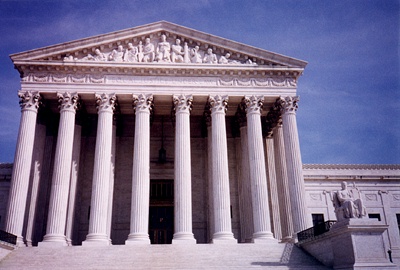All Nonfiction
- Bullying
- Books
- Academic
- Author Interviews
- Celebrity interviews
- College Articles
- College Essays
- Educator of the Year
- Heroes
- Interviews
- Memoir
- Personal Experience
- Sports
- Travel & Culture
All Opinions
- Bullying
- Current Events / Politics
- Discrimination
- Drugs / Alcohol / Smoking
- Entertainment / Celebrities
- Environment
- Love / Relationships
- Movies / Music / TV
- Pop Culture / Trends
- School / College
- Social Issues / Civics
- Spirituality / Religion
- Sports / Hobbies
All Hot Topics
- Bullying
- Community Service
- Environment
- Health
- Letters to the Editor
- Pride & Prejudice
- What Matters
- Back
Summer Guide
- Program Links
- Program Reviews
- Back
College Guide
- College Links
- College Reviews
- College Essays
- College Articles
- Back
Breaking the Rules
Last year in the musical, Catch Me If You Can, my character was an FBI agent (falsely) named Carl Hanratty who, at one point, sang about not breaking the rules. From child to young adult, I’ve had some of the same ideals as Hanratty did. Learning the difference between right and wrong starts at a very early stage was one of his warrants I agreed with, but two he didn’t make an allusion to was learning from your mistakes and what the consequences may be.
As Carl Hanratty says at the start of his song, “It starts very early, once the baby toys are gone.” As a kid, everything and anything can be perceived as a game, but emotions start to rise if the outcome isn’t in the favor of the small child. These emotions can lead a child to cheat therefore breaking the rules. These scenarios generally take place somewhere with other kids the same age. Kids at the young age may not have learned the difference between right and wrong, but they have learned that if you break the rules, things can go your way making the game more fun. Children are easily swayed; it wouldn’t take much to start a habit of doing the wrong thing.
At first, cheating is very innocent. The child doesn’t know any better. The parent/guardian needs to teach them the difference between right and wrong so that the child may learn from his or her mistake(s). But if the same wrongdoing happens multiple times after that, then there is an issue because the child knows what he or she is doing is wrong and is still doing it. Though these actions are common among young children, they are not limited to them. Laws and rules are synonymous. Laws and rules alike are set to keep the state of someone, or something safe. Breaking a law is like breaking a rule. The “rules” broken can be as insignificant as loitering to something moderate like littering, to something as big as murders, robberies or even rape. If strict rules are set and then broken, consequences usually precede the action.
Consequences for breaking the rules depend on the significance or how major of a rule was broken. During childhood, penalties for me included the timeout step, a bar of soap or vinegar in my mouth, or losing the privileges to some of my toys. As a child these can be horrific at the time. But as the seriousness of the disorder rises, the consequence rises with it. Minor penalties can be very insignificant or the paying of a small fine, but for a significant crime, big fines, jail time, and even the possibility of being put to death are placed on the table of usable punishments. People think its justice, for some it is, but not all. They just needed to learn the difference between right and wrong earlier to prevent corruptness tempted by opportunities presented later in life.
Rules are placed for a reason, whether that reason is for safety, for fairness, or to uphold a system of checks and balances. As a fantasy FBI Agent once said, learning the difference between right and wrong starts at a very early stage, one of his warrants I agreed with, but two he didn’t make an allusion to was learning from your mistakes and what the consequences may be. If changes aren’t made in the early stages of childhood, then they’ll never learn and when they grow up, their consequences will be determined based on the severity of their action. If you remember one thing, remember this, Don’t Break the Rules!

Similar Articles
JOIN THE DISCUSSION
This article has 0 comments.

This was for a synthesis essay at my school. I thought it was pretty good so I wanted to share it with others to see their opinions. thank you for viewing!